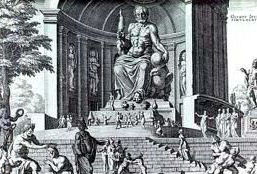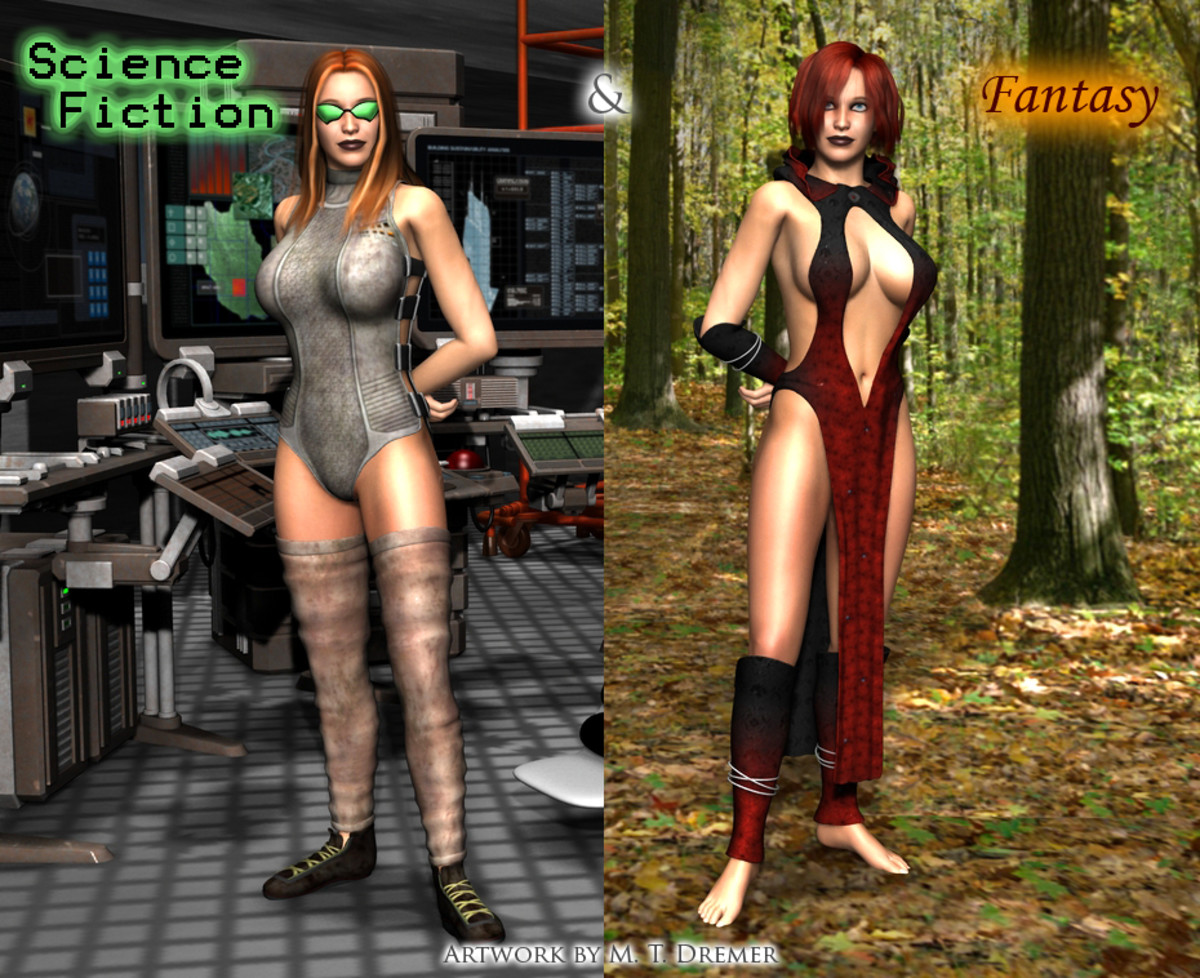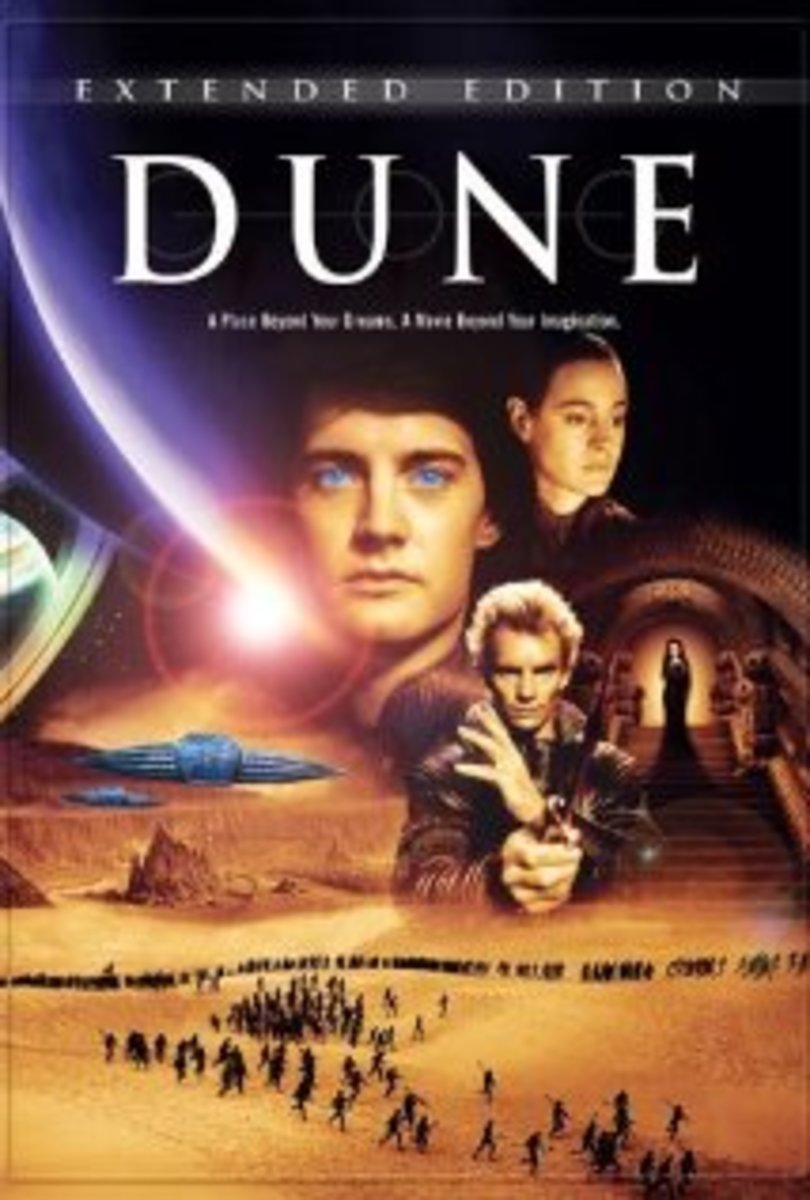- HubPages»
- Books, Literature, and Writing»
- Books & Novels»
- Fiction»
- Science Fiction & Fantasy Books
Religion in Sci-Fi and Fantasy
Some people just don't want to hear it

Sometimes discussing religion can be life threatening
Why is sci-fi and fantasy virtually controversy proof?
It has been considered a rule of etiquette never to discuss politics and religion in general company for over one hundred years. Considering the potential those subjects have for starting arguments it is easy to see why. It's generally difficult to even write on religion except to an audience of coreligionists without giving someone offense. If a work intended only for coreligionists finds it's way into the hands of someone of another religion offense is almost inevitable. In science fiction and fantasy though this does not seem to be the case, most of the time. What makes these genre immune to generating conflict on such a sensitive subject?
Zeus

Well, sometimes they aren't
Examining one case where the genre has created conflict might be useful. The Advanced Dungeons and Dragons game and the spinoff novels, that were published in the 80's, were infamous for being accused of teaching the games players witchcraft and satanism. The reason, aside from the discomfort some people have with any fictional mention of magic, seems to have been the Deities and Demigods book that accompanied the game. It depicted several pantheons that were actually worshiped, both historically and currently, alongside fictional entities like Cthulhu. To escape the criticism the next revision of the game changed to an entirely fictional religious pattern. Curiously though Marvel comics had featured members of many of the same pantheons as comics characters. They had even featured the Norse god Thor as a title character for decades without generating as much controversy. The movie Stargate and it's spinoff T.V. series featured aliens who impersonated entire pagan pantheons. In the movie it was even suggested that an alien had been responsible for the ancient Egyptian religion. More recently the new version of “Battlestar Galactica” featured humans who worshiped the Greek gods battling monotheistic machines. Neither Stargate nor “Galactica” seems to have caused a ripple of controversy. So what was the difference? Was it merely that Dungeons and Dragons had only a small following and was therefore an easy target for critics? Or was it the fact that in the “in game” universe of D&D the pagan gods were “real?” In Marvel's comics and the Stargate franchise the “gods” were all aliens (extra-dimensional and extraterrestrial respectively) that primitive people had worshiped due to superhuman abilities or advanced technology. In “Galactica” the polytheism was treated as the characters belief but only the generic monotheistic beliefs were portrayed as accurate. Is this a clue to an unwritten rule for avoiding controversy? Characters in a story may believe what they wish as long as the reality behind the belief is kept generic enough to be inoffensive. If, on the other hand, a real world belief is given a foundation of truth it must be presented in a way that implies the belief was the result of a misunderstanding of that truth.
Some of Trek's god like aliens
- Who Mourns for Adonais? (episode) - Memory Alpha, the Star Trek Wiki
Real World article (written from a Production point of view) The Enterprise is captured by an... - Tapestry (episode) - Memory Alpha, the Star Trek Wiki
Real World article (written from a Production point of view) After being attacked on an away... - Errand of Mercy (episode) - Memory Alpha, the Star Trek Wiki
Real World article (written from a Production point of view) Kirk and Spock try to protect the... - Who Watches The Watchers (episode) - Memory Alpha, the Star Trek Wiki
Real World article (written from a Production point of view) The Enterprise must undo the damage... - Devil's Due (episode) - Memory Alpha, the Star Trek Wiki
Real World article (written from a Production point of view) The USS Enterprise-D responds to a...
You can get away with it if you say "God" is really an alien
“Star Trek” and it's spin-offs, despite projecting humanities future as entirely devoid of religion, are famous, or perhaps infamous, for including godlike aliens who meddled in the characters lives. From the Organians to Trillane to the Q the various crews kept running into beings that had evolved to near divine power levels. With the exception of Q and Apollo none of these creatures ever claimed actual divinity. In the case of Q the claim was only made once, during what may have been a hallucination, and Apollo was a case of an alien behind a real world religion. Just because they never claimed divinity does not mean these creatures weren't used to provide commentary on religious issues. The Bajoran religion from “Star Trek: Deep Space Nine” was presented as being based on the influence of “aliens in a wormhole,” and served to provide commentary on religions role in society for good or ill. The Organians on the other hand could easily have stemmed from a writer wishing to explore how people might react if God really did step in and stop a war from happening. Curiously for all the god like aliens in Trek they are seldom depicted as inspiring religious devotion even among races that do mistake members of star fleet or other star going races for gods.
How one set of beliefs can generate different cultures
Or if you just create a fictional belief system
An example of the opposite extreme of religion in science fiction is the portrayal in David Webers Honorverse. Religion is depicted as something the characters believe but the foundation for that faith is treated as subjective. This subjectivity allows Weber to explore the concept that a single belief system might give rise to quite different practices under different conditions. The worlds of Grayson and Masada both derive their beliefs from the “Church of Humanity Unchained” a polygamist sect that seems to borrow beliefs from several real world religions. The Graysons are depicted (with a few exceptions) as willing to fit new ideas and social practices into their theology and as loving but sheltering their women. The Masadans however are shown to be closed minded and treat their women like slaves. This dichotomy is a good fictional object lesson to those who might condemn an entire belief system based on the actions of some of it's adherents. It also serves as a cautionary tale about religious extremism.
The Star Wars franchise and it's bridging of science fiction and fantasy positively drips with religious and moral elements. Life after death, a messianic figure, redemption. The only way the series could have more religious overtones is if the characters actively worshiped the force. The jedi's lifestyle is as close as they get to that though. Nevertheless the stories are as much religious as they are science fantasy.
Real world religious references most people don't notice
If a god is "real" in fiction it better be one the author made up.
In fantasy there is one distinct difference from science fiction. If a being has godlike powers it generally is a deity. This makes it possible for an author to criticize or praise deity more overtly through their portrayal of fictitious counterparts. Sometimes the parallels between a fictitious deity and religion and real world religion are quite overt as they are in The Chronicles of Narnia. In other cases such as the Dragonlance trilogy they are more subtle and might not be noticed by any but the authors coreligionists. Not that the ability to overtly explore divinity in fantasy necessarily means that an author will do so. The Tales of Alvin Maker series only seems to mention God or religion in relation to it's place in the quasi historic setting. The series antagonist “the Unmaker” appears to be a deliberate analog for the Devil however. Even if fantasy fiction does have an explicitly stated deity that doesn't necessarily mean that he or she will act in an obvious fashion. At the end of The Hobbit Bilbo needs to be reminded that all his good fortune was fulfillment of prophecy and part of a larger design.
You can talk about it all here, if you're carefull

Fantasy and Science Fiction havens for controversial topics
Religion has had a huge impact on human history. Sadly in our day of “religious tolerance” we find it to be an uncomfortable subject for public discussion. Sci-fi and fantasy have never been places where authors were shy about discussing uncomfortable topics though. It was perhaps inevitable therefore that these genre should provide a place where faith and deity could be discussed.










